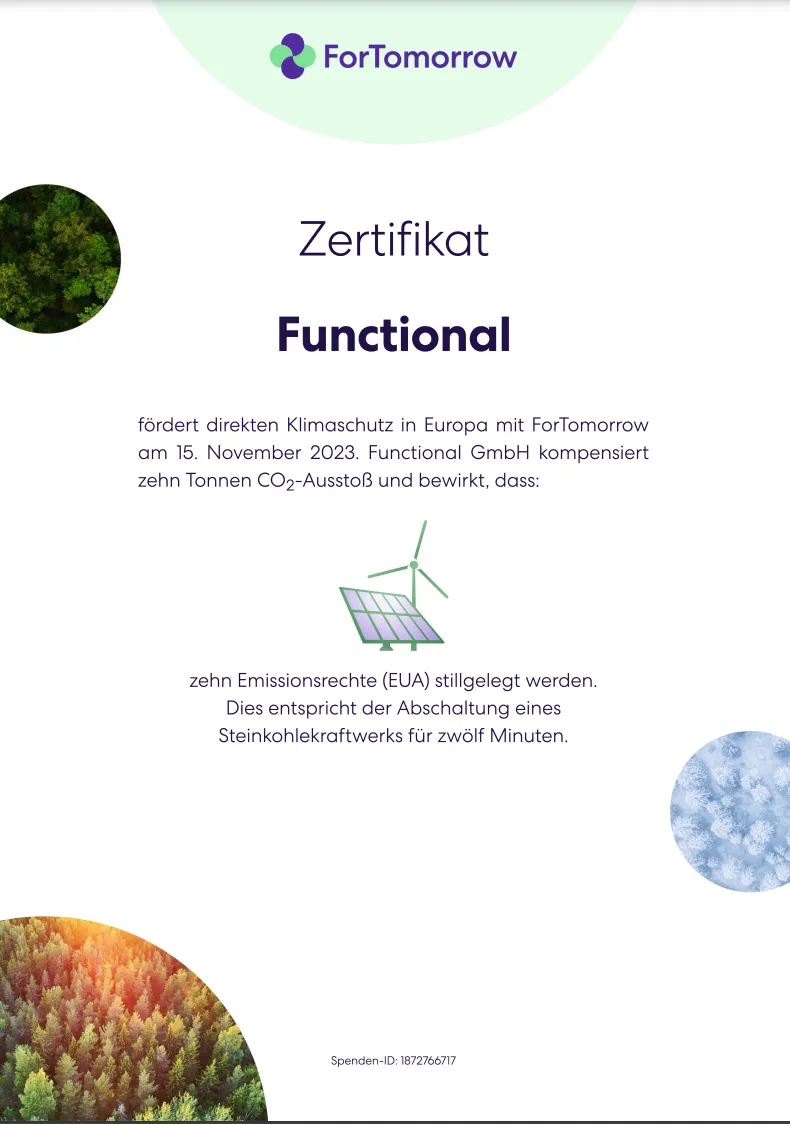Functional GmbH offset 10 Tons of CO2 in 2023 via ForTomorrow. We spent quite some effort to determine our footprint and then some to find out what the best option is for offsetting our emissions. Keep reading for learning more about our rational.

We are not a manufacturing company. So, how hard can it be to determine our own footprint? We have a couple of purchased goods (IT-Hardware, etc), travel, heating, electricity, use of cloud services. For goods we use invoices, for travel the travel expenses sheet, for heating our landlord’s heating bill, for electricity we use the electricity provider bill in combination with smart devices like Shelly Plugs, etc.
However, finding the correct conversion factors to translate traveled kilometers for a night in a hotel into a CO2 equivalent turned out much harder, since the rates in the resources like online calculators on the internet vary quite a bit. So we did not use one single calculator like carbonfootprint.com but individual sources for each calculation. The details of this journey might be part of a separate blog entry. The same goes for our discussions about how to determine the hotels with the potential lowest footprint (e.g. is room utilization a factor?).
Long story short: at the end of the day, we added a 40% safety margin to be on the safe side…
Finding the right way to do the actual offsetting sparked another lively discussion. There are countless organizations out there for planting trees, ~ 1.4 billion trees in the last 30 years, for offsettings and other reasons. And while it is a nice feeling imagining that there will be x more trees planted in the world because of us, there are arguments to be made why other options might be better suited.
So we compared different options: